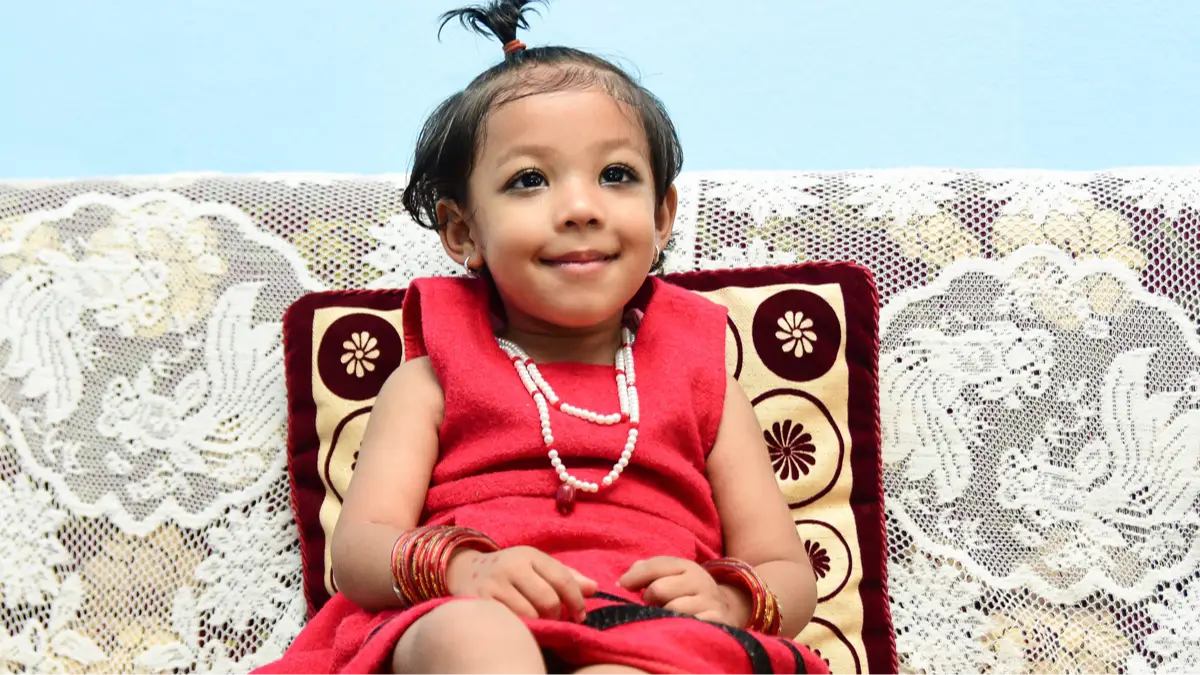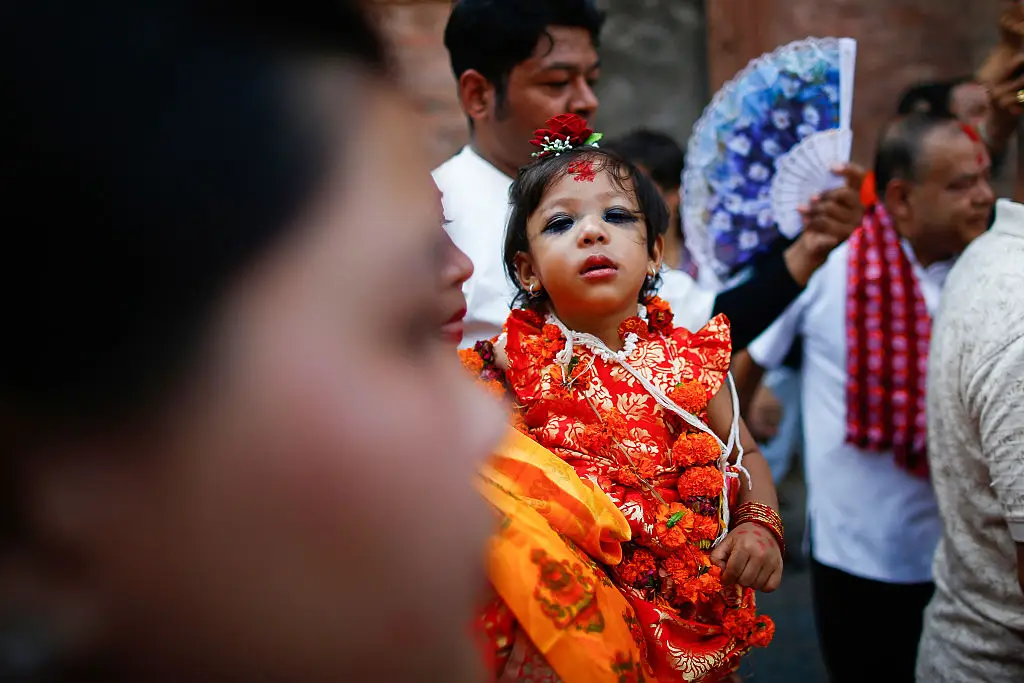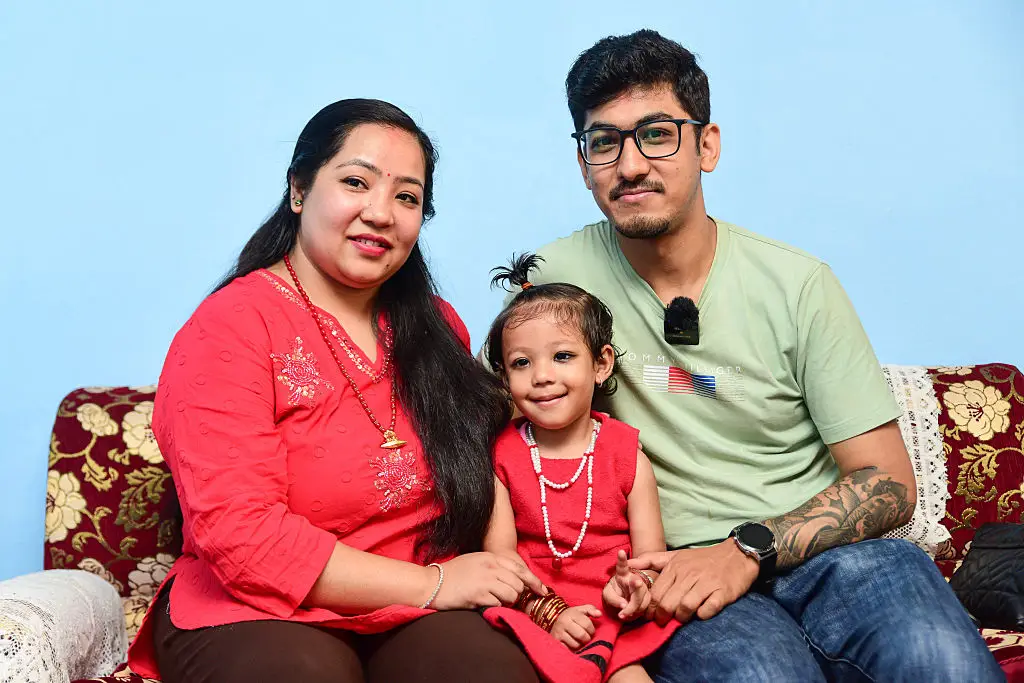
A two-year-old girl has officially been chosen as Nepal’s new 'virgin goddess' after meeting a set of sacred and very specific requirements - but what does it actually mean?
At just two years and eight months old, Aryatara Shakya has become the country’s latest Kumari, which is a living deity worshipped by both Hindus and Buddhists.
She's replacing 11-year-old Trishna Shakya, who lost her divine status after reaching puberty.
On Tuesday (September 30), Aryatara was carried from her family home through the streets of Kathmandu to a palace temple during Dashain, Nepal’s most important Hindu festival. Devotees lined the streets to touch their foreheads to her feet - the highest sign of respect - and showered her with flowers and money.
Advert
Now installed in the Kumari’s palace, Aryatara will bless devotees, dignitaries, and even Nepal’s president.
During festivals, she’ll appear dressed in red with her hair tied in a topknot and a 'third eye' painted on her forehead, wheeled through the city on a golden chariot pulled by followers.
But sadly for young Aryatara, life as a Kumari is not like any other childhood.

She will live mostly in seclusion, only leaving the temple on rare festival days, while former Kumaris often struggle to adjust to ordinary life - and local folklore even warns men against marrying a former goddess, claiming it could bring an early death.
As for why the youngster was chosen, it's in line with Nepalese tradition that the Kumari hails from the Shakya clan of the Newar community, and must be a young girl with the belief that she embodies the female energy of the goddess Taleju.
The search for a Kumari involves examining girls selected between the ages of two and four who must be completely free from physical blemishes, with perfect hair, eyes, teeth, and skin.

She must also display traits of fearlessness - including not being afraid of the dark... so you can imagine how that test is done.
Aryatara reportedly ticked every box, making her the next in a centuries-old line of revered living goddesses.
Her father, Ananta Shakya, said: “She was just my daughter yesterday, but today she is a goddess.
He said there were already signs she would be the goddess before her birth, as he continued: “My wife during pregnancy dreamed that she was a goddess, and we knew she was going to be someone very special.”
In recent years, traditions have modernised slightly, with Kumaris now receiving private tutoring, access to TV, and even a government pension once their time as a goddess ends.
Topics: Religion